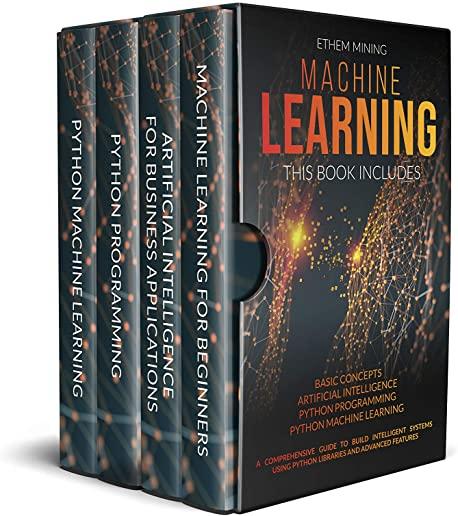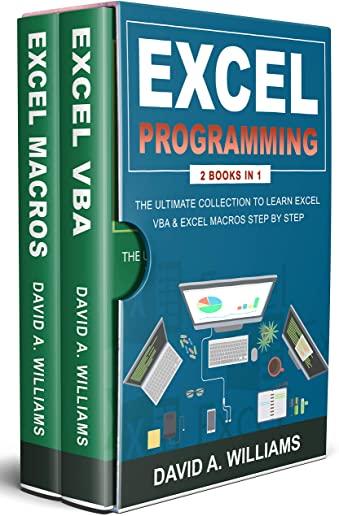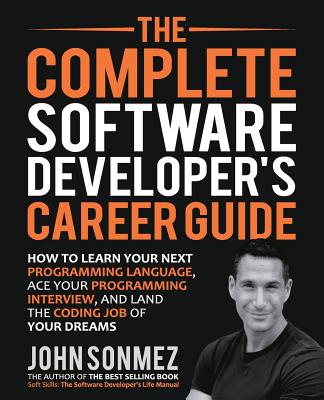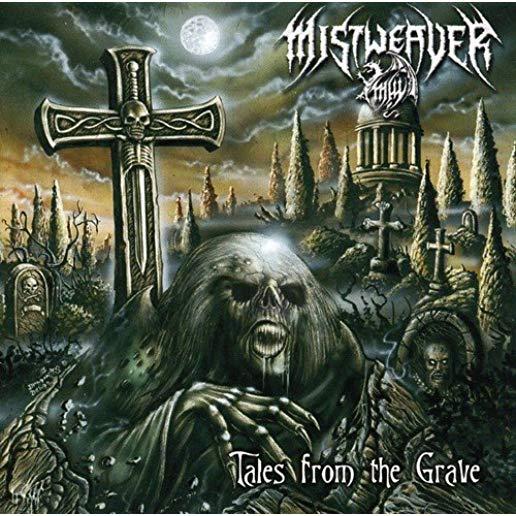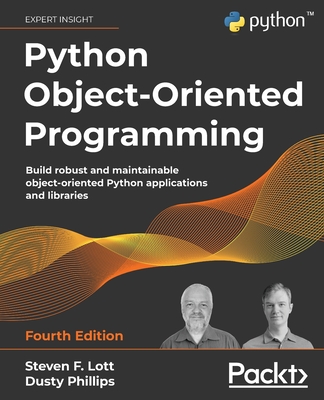
Lott, Steven F.
Key Features:
- Build an intuitive understanding of object-oriented design, from introductory to mature programs
- Learn the ins and outs of Python syntax, libraries, and best practices
- Examine a machine-learning case study at the end of each chapter
Book Description:
Python Object-Oriented Programming, Fourth Edition dives deep into the various aspects of OOP, Python as an OOP language, common and advanced design patterns, and hands-on data manipulation and testing of more complex OOP systems. These concepts are consolidated by open-ended exercises, as well as a real-world case study at the end of every chapter, newly written for this edition. All example code is now compatible with Python 3.9+ syntax and has been updated with type hints for ease of learning.
Steven and Dusty provide a friendly, comprehensive tour of important OOP concepts, such as inheritance, composition, and polymorphism, and explain how they work together with Python's classes and data structures to facilitate good design. UML class diagrams are generously used throughout the text for you to understand class relationships. Beyond the book's focus on OOP, it features an in-depth look at Python's exception handling and how functional programming intersects with OOP. Not one, but two very powerful automated testing systems, unittest and pytest, are introduced in this book. The final chapter provides a detailed discussion of Python's concurrent programming ecosystem.
By the end of the book, you will have a thorough understanding of how to think about and apply object-oriented principles using Python syntax and be able to confidently create robust and reliable programs.
What You Will Learn:
- Implement objects in Python by creating classes and defining methods
- Extend class functionality using inheritance
- Use exceptions to handle unusual situations cleanly
- Understand when to use object-oriented features, and more importantly, when not to use them
- Discover several widely used design patterns and how they are implemented in Python
- Uncover the simplicity of unit and integration testing and understand why they are so important
- Learn to statically type check your dynamic code
- Understand concurrency with asyncio and how it speeds up programs
Who this book is for:
If you are new to object-oriented programming techniques, or if you have basic Python skills and wish to learn how and when to correctly apply OOP principles in Python, this is the book for you. Moreover, if you are an object-oriented programmer coming from other languages or seeking a leg up in the new world of Python, you will find this book a useful introduction to Python. Minimal previous experience with Python is necessary.
